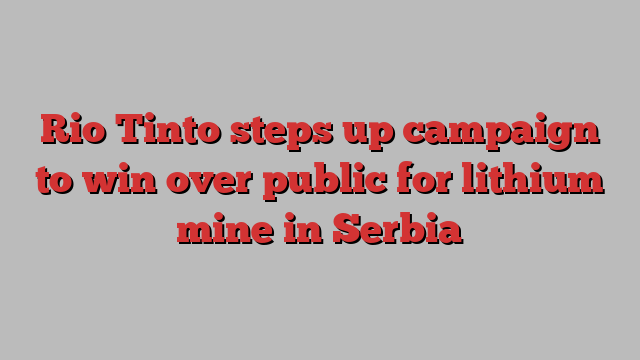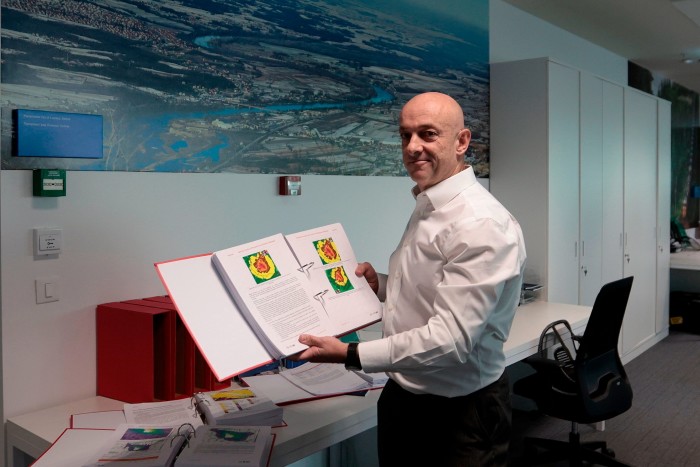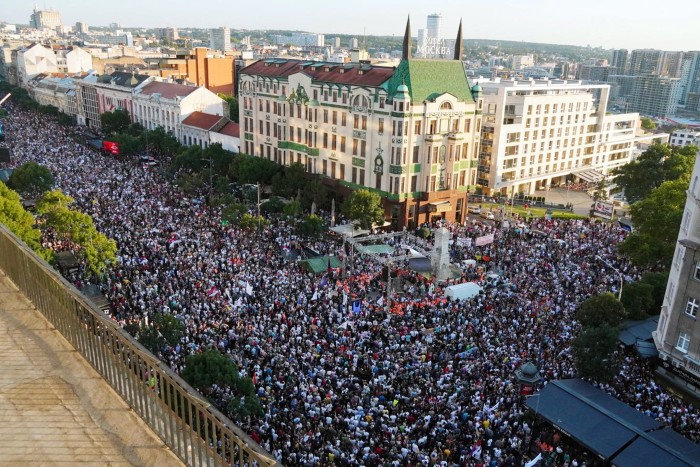
Unlock the Editor’s Digest for free
Roula Khalaf, Editor of the FT, selects her favourite stories in this weekly newsletter.
Rio Tinto has stepped up its campaign to win over public opinion in Serbia for what would be Europe’s biggest lithium mine — a metal critical for the region and the clean energy transition.
The Anglo-Australian miner, the world’s second biggest by market capitalisation, is in a long-running fight to gain public support because of widespread opposition over environmental concerns.
Nearly two-thirds of Serbs reject Rio’s plan to build the mine in the country’s picturesque Jadar Valley in the west of the country, according to a national poll this month by the think-tank New Serbian Political Thought.
It could prove important for the clean energy transition in Europe as the government estimates the mine could supply batteries for 1mn electric vehicles annually — about 17 per cent of EV demand in the region.
Lithium is used in EV batteries and a range of other industries and demand is projected to surge once EV use rises. The metal is also important to help Rio diversify away from iron ore as it adapts its business in the move to clean power, say analysts.
The company now aims to win support in a big publicity drive through a number of public presentations and conferences with local people as well as media appearances.

It hopes the mine will receive its exploitation license by the end of the year, despite the public opposition and protests.
After that a consultation would begin on the environmental impact assessment, then the mine would need a construction licence before any building could begin.
“You’re not going to get to talk about economic benefits, which are immense for the people of Serbia, until you deal with the concerns over environmental impacts, human health,” Rio Tinto managing director for Serbia Chad Blewitt said in an interview.
“We know there are a number of eyes on us due to the quite extensive disinformation campaign that’s out there,” he added. “We welcome a fact-based dialogue.”
Earlier this month Rio chief executive Jakob Stausholm pressed his case in a town hall in Ljubovija with local residents, together with President Aleksandar Vučić, which was livestreamed for six hours on national TV.
Vučić said he expected the mine to be a game-changer for Serbia, with investment from global carmakers such as Stellantis or Mercedes-Benz that the government estimates could boost the country’s GDP by €12bn annually or close to 20 per cent.

Rio previously estimated the underground mine would cost $2.4bn to build, making it Serbia’s biggest foreign investment in the industrial sector. That cost has likely risen to more than $3bn, accounting for inflation and currency movement, according to Barclays.
The deposit of Jadarite — a newly discovered composite unique to the area containing high quantities of lithium and boron — would produce as much as 58,000 tonnes of lithium carbonate equivalent a year once fully developed.
“Lithium is a commodity where they see significant long-term demand growth,” said Amos Fletcher, mining analyst at Barclays, adding that Rio may also turn to acquisitions to grow its lithium production.
Blewitt called the mine “a generational transformational opportunity for the economy. But it’s good for Rio Tinto as well. It’s a future facing metal [and] it’s the highest grade, longest life deposit in Europe.”